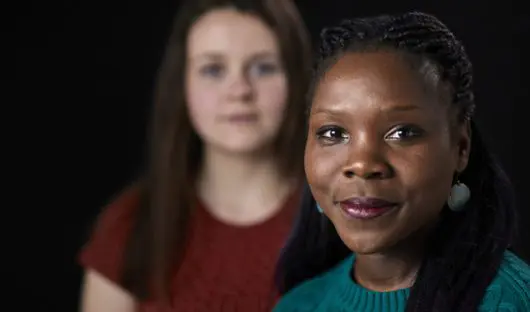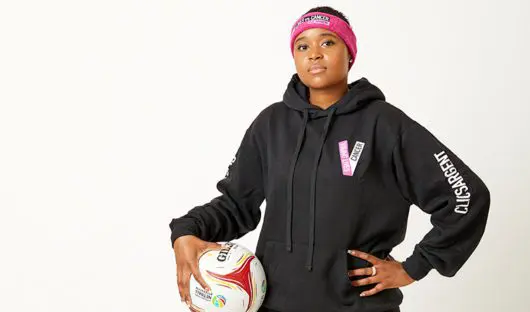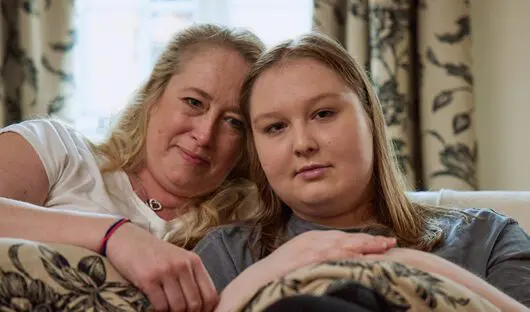Our history
Young Lives vs Cancer’s foundations is a tale of two halves – and two incredible, pioneering charities brought together under one name for one common cause: to help young people and their families facing cancer.
Let’s take it back to 1968… a year that changed history. The Beatles released Hey Jude, Apollo 8 first orbits the moon – and the Young Lives vs Cancer story begins.
Sylvia Darley OBE set up Malcolm Sargent Cancer Fund for Children, in memory of Sir Malcolm Sargent. As chief conductor of the Proms from 1948 to 1967, Sir Malcolm gained his widest fame and was noted for his witty addresses to audiences. Not long after his last appearance at The Last Night of the Proms, Sir Malcolm died of cancer and his long-term manager Sylvia set up Malcolm Sargent Cancer Fund for Children in his memory, in 1968. Sylvia set up the charity at the behest of the Promenaders, a group of members of the Prom audience who attended night after night at the Royal Albert Hall. It was the Promenaders that asked Sylvia to set up a lasting memorial to Sir Malcolm.
When thinking about how to honour Sir Malcolm’s memory, Sylvia thought about childhood cancer, and visited The Royal Marsden to find out more about what support children in hospital and their families might need.
It was there that Sylvia was told about a little girl with cancer whose parents were worried about taking her home from hospital because they couldn’t afford to keep their flat warm; and about a boy whose father could only afford to visit his son in hospital once a week. The hospital suggested a new charity in Sir Malcolm’s name could pay for the father’s railway journey, and the gas bill for the parents to keep their home warm for their little girl.
Sylvia and a committee of Promenaders met in Sir Malcolm’s flat and agreed to fund the travel, heating, clothing and any needs a family facing childhood cancer might have. A television appeal was launched on the BBC, with famous actor Kenneth More alongside a fundraising ‘Promenaders’ Pilgrimage’ – a 120-mile walk from London to Stamford. The first grant came in for Malcolm Sargent Cancer Fund for Children in 1969. This was the first charity in the UK to help and recognise children with cancer – it didn’t exist before.
From then on the charity funded many grants for families – including some more unusual requests. Sylvia fondly recalls a ward sister from Southampton General calling the charity and asking ‘Do they do hay?’ – and requesting if they did grants for pony nuts and hay. “Well not to date, but tell me more,” Sylvia replied.
Sylvia was told about the little girl who had Hodgkin’s Lymphoma – but wouldn’t accept the treatment unless she could go home and talk to her pony. But her parents couldn’t afford the winter feed for the horse. The charity provided a grant and the girl would tell her pony all her troubles and about her treatment. Sadly, the little girl died, but Sylvia is still in touch with her mother.
The first Malcolm Sargent Social Worker was employed in 1976. And in 1982, Diana, Princess of Wales, became a Patron of the charity. Sylvia said the Princess was wonderful and she sat with the parents of children having cancer treatment and gave them support.
It is the vital care and social worker support for children with cancer, and the core values of the charity set up by Sylvia and the Promenaders in Sir Malcolm Sargent’s name, that continue to be the very foundations of Young Lives vs Cancer today.
Now let us tell you about another legacy that lives on through our charity, and is at the heart of our history and everything we do today: the incredible work of Bob Woodward and CLIC (Cancer and Leukaemia in Childhood).
In 1974, Bob Woodward’s son Robert was diagnosed with neuroblastoma, sadly dying three years later in 1977, aged just 11 years old. It was during this time Bob and his wife Judy became increasingly aware of the issues faced by families of children with cancer. Bob, a successful businessman, wanted to do something to help, and he set out to improve the care and support for families facing childhood cancer. It was the strength of his son during his treatment that inspired Bob to ‘change the world of the child with cancer’.
While visiting Robert in hospital, Bob learned about the children who were a long way from home while receiving treatment, and the parents who were struggling for somewhere to stay close to their child in hospital – finding themselves sleeping on the hospital floor. And so Bob founded CLIC – Cancer and Leukaemia in Childhood – and set up the very first ‘Home from Home’ in the UK, pioneering free accommodation for the families of young cancer patients and the improved welfare of children with cancer.
To help fund the continuing costs of the Home from Home and other services, Bob had a vision to launch charity shops in Bristol and across the South West. With an ever-growing group of supporters, CLIC began funding a Paediatric Oncology Unit at the Bristol Children’s Hospital, domiciliary care nurses, hospital play therapists, and a CLIC ambulance service to give specialist support to children with cancer. The charity expanded to provide holidays for young cancer patients, and the first Chair of paediatric oncology in the UK and a CLIC Research Unit was set up at the University of Bristol.
Within a few years the charity had a network of Homes from Home – each near the seven major children’s cancer centres. Bob once said: “I didn’t have a clue how to fundraise in the beginning. I had to learn how to inspire people to donate.”
Over his lifetime, Bob was instrumental in raising more than £100 million for charity, and was described by President Mikhail Gorbachev as ‘one of the world’s great humanitarians’. He received the Freedom of the City of Bristol in 2006, a Pride of Britain Lifetime Achievement Award in 2011, and an OBE from the Queen in 2014. More recently, he was named one of Great Western Railway’s 50 ‘Great Westerners’ and had the honour of a train being named after him shortly before he died in 2019.
Bob’s caring nature, and his drive to not stop until every child and young person suffering from cancer receives better support, lives on in Young Lives vs Cancer’s values today.


